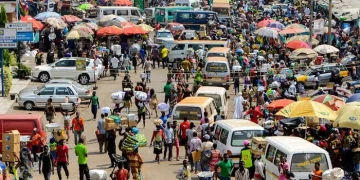‘We Are Eating Poisoned Food’, Says Dr. Kojo Ahiakpa as Illegal Mining Polluting Ghana’s Food Basket Regions
Senior Policy and Research Advisor at the Chamber of Agribusiness Ghana, Dr. Kojo Ahiakpa, has warned that illegal mining, popularly known as galamsey, poses an existential threat to Ghana’s food systems, water bodies, and public health.
Speaking during the NorvanReports, Economic Governance Platform (EGP) and Ghana Anti-Corruption Coalition (GACC) X Space discussion on the theme “Farming at the Crossroads: How Galamsey Threatens Ghana’s Farmlands and Food Security”, Dr. Ahiakpa described the situation as a “state-supervised ecocide” that demands urgent national action.
According to him, the contamination of major river bodies in the northern and savannah belts, where a significant portion of Ghana’s food is produced, has led to widespread pollution of vegetables, grains, and livestock consumed in urban centres such as Accra and Kumasi.
“The water we drink in Accra, no matter how purified, contains heavy metals that cannot be removed by the Ghana Water Company. What this means is that we are already being polluted. Vegetables irrigated with water from rivers such as the White Volta and Black Volta are poisoned before they even reach our markets,” he said.
Dr. Ahiakpa explained that nine out of the 13 heavily polluted regions in Ghana are considered the country’s food basket, producing staples such as maize, yam, rice, and vegetables. With irrigation systems dependent on contaminated rivers, he cautioned that food supplies to the south are increasingly unsafe.
Beyond crop production, livestock and poultry in northern Ghana are also at risk. “These animals drink directly from polluted water bodies, and since their digestive systems cannot break down heavy metals, these toxins end up in the meat and poultry we consume,” he noted.
He cited recent medical reports linking heavy metal exposure to public health crises, including spontaneous abortions, stressing that “none of us is spared in this crisis.”
The agribusiness advisor also highlighted the environmental destruction caused by galamsey, including the diversion of river courses, flooding of farmlands, and the cutting down of cocoa and maize farms for illegal mining activities.
Calling the situation a national security threat, Dr. Ahiakpa argued that Ghana has reached the point where decisive and drastic measures are needed.
“We need to collectively put pressure on the powers that be to act. This is not only about poisoned food or destroyed forests; it is about the survival of our population. All living organisms are at stake—the rivers, the flora and fauna, even the air we breathe is polluted,” he emphasised.
Drawing lessons from Ecuador, which recently reduced illegal mining activity by more than 70% through aggressive state action, Dr. Ahiakpa urged Ghana’s leadership to demonstrate the same resolve.
“Our problem as a country is that we do not have limits. We need to say enough is enough and act to protect our future,” he said.








